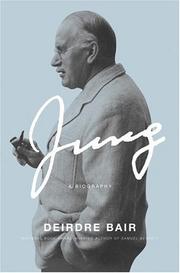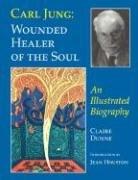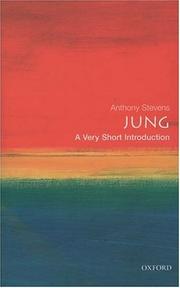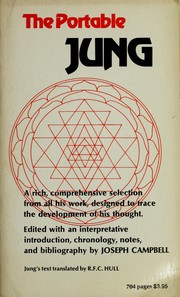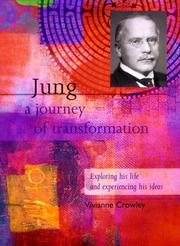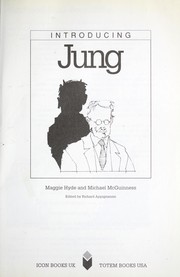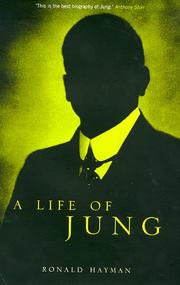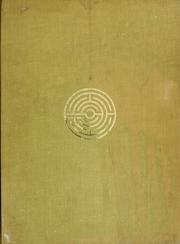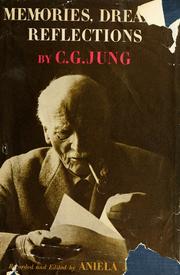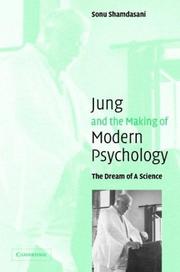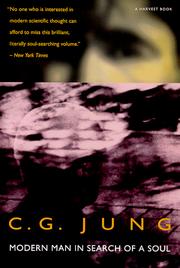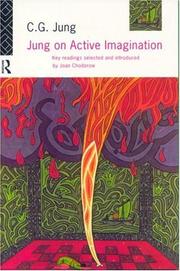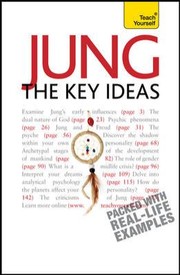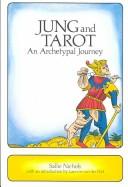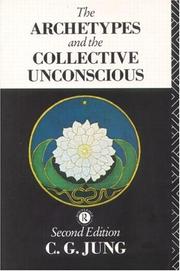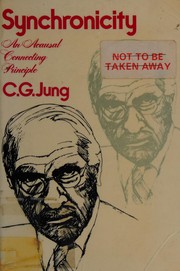Are you fascinated by the life and work of Carl Jung? Dive into the depths of his groundbreaking theories and insights with our list of the 20 best books about Carl Jung. Whether you’re a psychology enthusiast, a student of Jungian analysis, or simply curious about the man behind the theories, these books offer a comprehensive exploration of Jung’s ideas, life, and impact on the field of psychology. From biographies to in-depth analyses of his work, each book on Carl Jung provides a unique perspective on his contributions to the understanding of the human psyche. Let’s embark on a journey through the mind of this influential thinker.
Contents
- 1 20 Best Carl Jung Books
- 2 Jung: A Biography
- 3 Carl Jung: Wounded Healer of the Soul
- 4 Jung: A Very Short Introduction
- 5 The Portable Jung
- 6 Jung: A Journey of Transformation
- 7 Jung: A Graphic Guide
- 8 Jung: A Biography in Books
- 9 Jung: A Life
- 10 Man and His Symbols
- 11 The Red Book
- 12 Memories, Dreams, Reflections
- 13 Jung and the Making of Modern Psychology: The Dream of a Science
- 14 Modern Man in Search of a Soul
- 15 The Portable Jung
- 16 Jung on Active Imagination
- 17 Jung: The Key Ideas
- 18 Jung and Tarot: An Archetypal Journey
- 19 The Archetypes and the Collective Unconscious
- 20 The Psychology of Kundalini Yoga
- 21 Synchronicity: An Acausal Connecting Principle
- 22 Final Thoughts on Best Carl Jung Books
- 23
20 Best Carl Jung Books
Jung: A Biography
by Deirdre Bair
Jung: A Biography by Deirdre Bair is an in-depth exploration of the life and work of the influential psychologist and founder of analytical psychology, Carl Jung. This meticulously researched biography delves into Jung’s personal history, his groundbreaking theories, and the impact he had on the field of psychology. Bair provides a compelling and comprehensive look at Jung’s complex personality, his relationships with colleagues and patients, and the development of his revolutionary ideas.
Through extensive interviews and access to Jung’s personal archives, Bair offers a fascinating glimpse into the man behind the theories, shedding light on his struggles, triumphs, and the controversies that surrounded his work. This compelling biography is a must-read for anyone interested in psychology, the history of psychoanalysis, or the life of this influential figure. Bair’s insightful and engaging writing style brings Jung’s story to life, making this biography a captivating journey into the mind of one of the most significant figures in the field of psychology.
Carl Jung: Wounded Healer of the Soul
by Claire Dunne
Carl Jung: Wounded Healer of the Soul by Claire Dunne is a captivating exploration of the life and work of the renowned psychoanalyst. This insightful book about Carl Jung delves into the complexities of Jung’s own struggles and how they influenced his groundbreaking theories on the human psyche. Dunne skillfully navigates through Jung’s childhood traumas, his turbulent personal relationships, and his revolutionary concepts such as the collective unconscious and archetypes.
Through thorough research and engaging storytelling, Dunne paints a vivid portrait of Jung as a wounded healer, someone who courageously delved into the depths of his own psyche to uncover profound insights into the human condition. Readers will gain a deeper understanding of Jung’s pivotal role in the development of psychology and his enduring legacy as a visionary thinker.
Whether you are a psychology enthusiast or simply intrigued by the enigmatic figure of Carl Jung, this book on Carl Jung offers a compelling journey into the life and work of a truly transformative figure in the field of psychology.
Jung: A Very Short Introduction
by Anthony Stevens
Jung: A Very Short Introduction, written by Anthony Stevens, is a concise and engaging overview of the life and work of the renowned psychiatrist and psychoanalyst, Carl Jung. This book provides a comprehensive introduction to the key concepts and ideas of Jungian psychology, making it an essential read for anyone interested in delving into the world of analytical psychology.
Stevens skillfully delves into Jung’s theories on the collective unconscious, archetypes, and the process of individuation, offering a clear and accessible exploration of Jung’s groundbreaking contributions to the field of psychology. Through engaging prose and insightful analysis, Stevens brings Jung’s complex ideas to life, making them accessible to readers of all backgrounds.
Whether you’re a seasoned scholar or someone new to the world of psychology, this book about Carl Jung offers a valuable and illuminating look at the enduring legacy of one of the most influential figures in the history of psychology.
The Portable Jung
by Carl Jung, edited by Joseph Campbell
The Portable Jung, edited by Joseph Campbell, is a comprehensive collection of the writings of the renowned Swiss psychiatrist and psychoanalyst, Carl Jung. This book on Carl Jung offers a fascinating insight into the mind of one of the most influential figures in the field of psychology.
Readers will find a variety of essays, letters, and lectures that cover a wide range of topics, including dreams, mythology, religion, and the collective unconscious. Jung’s innovative ideas and profound observations on the human psyche are presented in a clear and accessible manner, making this book about Carl Jung an essential read for anyone interested in psychology, spirituality, or personal development.
With its engaging and thought-provoking content, The Portable Jung serves as a valuable introduction to the work of Carl Jung, as well as a valuable reference for those already familiar with his ideas. Whether you are a student, a professional in the field, or simply curious about the complexities of the human mind, this Carl Jung book is sure to leave a lasting impression.
Jung: A Journey of Transformation
by Vivianne Crowley
Jung: A Journey of Transformation by Vivianne Crowley is a captivating exploration of the life and work of the renowned psychologist and psychiatrist, Carl Jung. This insightful book delves into Jung’s revolutionary theories on the collective unconscious, archetypes, and the process of individuation, offering a deeper understanding of his transformative impact on psychology and spirituality. With a blend of scholarly analysis and personal reflection, Crowley takes readers on a fascinating journey through Jung’s groundbreaking concepts, shedding light on their relevance to our modern lives. Through engaging storytelling and rich historical context, this book provides a compelling portrait of Jung’s intellectual evolution and the profound influence of his ideas. Whether you’re a seasoned scholar or a curious newcomer, Jung: A Journey of Transformation offers a thought-provoking and accessible exploration of the legacy of this visionary thinker. Dive into this engrossing book about Carl Jung and embark on a transformative journey of self-discovery and enlightenment.
Jung: A Graphic Guide
by Maggie Hyde and Michael McGuinness
Jung: A Graphic Guide by Maggie Hyde and Michael McGuinness is an engaging and accessible book about the life and work of the influential psychologist, Carl Jung. This graphic guide provides a visual and informative journey into the world of Jung, exploring his theories on the collective unconscious, archetypes, and the process of individuation.
The book delves into Jung’s early life, his relationship with Sigmund Freud, and his groundbreaking concepts in psychology, making it a perfect introduction for those new to Jung’s ideas. With its colorful illustrations and clear explanations, this book offers a unique way to grasp the complexities of Jung’s theories and their relevance to modern psychology and culture.
Whether you’re a psychology enthusiast or simply curious about the workings of the mind, this book on Carl Jung is a must-read. It’s a visual feast that will leave you with a deeper understanding of Jung’s legacy and his enduring impact on our understanding of the human psyche.
Jung: A Biography in Books
by Sonu Shamdasani
Jung: A Biography in Books by Sonu Shamdasani is a captivating exploration of the life and work of the renowned psychologist and psychoanalyst, Carl Jung. This unique biography takes a novel approach by examining Jung’s life through the lens of his extensive literary output, providing a fascinating insight into the evolution of his ideas and the development of his groundbreaking theories. Through an in-depth analysis of Jung’s writings, Shamdasani offers a comprehensive portrait of the man behind the influential concepts of the collective unconscious, archetypes, and analytical psychology. Readers are taken on a journey through Jung’s intellectual development, personal struggles, and professional achievements, gaining a deeper understanding of the complex and enigmatic figure who revolutionized the field of psychology. Whether you’re a devoted follower of Jung’s work or simply intrigued by the life of an extraordinary thinker, this book about Carl Jung is sure to offer a compelling and illuminating perspective on his legacy.
Jung: A Life
by Ronald Hayman
Jung: A Life by Ronald Hayman is a captivating biography that delves into the life and work of the renowned psychologist and psychoanalyst, Carl Jung. This insightful book provides a detailed exploration of Jung’s early years, his groundbreaking theories, and his complex relationship with Sigmund Freud. Hayman skillfully portrays Jung’s personal struggles and professional achievements, offering a comprehensive understanding of the man behind the revolutionary concepts of the collective unconscious, archetypes, and the process of individuation.
Through meticulous research and engaging storytelling, Hayman brings Jung to life, shedding light on his influential impact on psychology, spirituality, and modern culture. From his controversial ideas to his visionary approach to the human psyche, Jung: A Life offers a compelling and illuminating portrait of this iconic figure.
Whether you’re a psychology enthusiast, a student of Jungian philosophy, or simply intrigued by the enigmatic figure of Carl Jung, this book about Carl Jung is a must-read for anyone seeking a deeper understanding of the man and his enduring legacy.
Man and His Symbols
by Carl G. Jung
Man and His Symbols is a groundbreaking book about Carl Jung and his theories on the human psyche. Written by Jung himself and a team of his associates, this book delves into the world of symbols and their significance in understanding the human mind. With accessible language and compelling examples, Man and His Symbols explores the role of symbols in dreams, art, and religion, shedding light on the universal language of the unconscious.
This book about Carl Jung is a must-read for anyone interested in psychology, mythology, or the mysteries of the human soul. It offers an insightful look into Jung’s theories on the collective unconscious, archetypes, and the process of individuation. Man and His Symbols presents Jung’s ideas in a way that is both engaging and thought-provoking, making it a valuable resource for both scholars and general readers alike.
The Red Book
by Carl G. Jung
The Red Book is a fascinating exploration into the inner world of the renowned psychologist Carl Jung. This book on Carl Jung provides a unique glimpse into Jung’s personal journey through the unconscious mind, filled with intricate illustrations and profound insights. It offers a rare opportunity to delve into the mind of the man who revolutionized the field of psychology.
Within the pages of this book about Carl Jung, readers will find a rich tapestry of symbols, dreams, and reflections that Jung encountered during his own psychological exploration. Through vivid imagery and introspective musings, Jung invites readers to embark on a transformative journey of self-discovery and understanding.
For anyone interested in delving into the depths of the human psyche, The Red Book is an essential addition to their collection. This Carl Jung book is a captivating blend of art and psychology, offering a profound and enlightening perspective on the workings of the unconscious mind.
Memories, Dreams, Reflections
by Carl G. Jung and Aniela Jaffe
Memories, Dreams, Reflections is a captivating autobiography of the renowned psychologist, Carl Jung, co-authored with Aniela Jaffe. This influential book on Carl Jung provides a deep insight into his personal and professional life, exploring his memories, dreams, and reflections. Jung’s experiences and inner struggles are intricately woven with his groundbreaking theories on the human psyche, making this book about Carl Jung a must-read for anyone interested in the field of psychology.
Readers are taken on a journey through Jung’s childhood, his encounters with Sigmund Freud, and his pioneering work in analytical psychology. The book delves into Jung’s spiritual and mystical experiences, shedding light on his understanding of the collective unconscious and archetypes.
Memories, Dreams, Reflections is a compelling and enlightening Carl Jung book that offers a unique perspective on the man behind the revolutionary theories. It is a profound exploration of the mind and soul of one of the most influential figures in psychology.
Jung and the Making of Modern Psychology: The Dream of a Science
by Sonu Shamdasani
Jung and the Making of Modern Psychology: The Dream of a Science by Sonu Shamdasani is a captivating exploration of the life and work of the renowned psychologist Carl Jung. This illuminating book delves into Jung’s groundbreaking theories and his pivotal role in shaping modern psychology. Through meticulous research and insightful analysis, Shamdasani offers a comprehensive overview of Jung’s intellectual journey, from his early fascination with dreams and the unconscious to his development of analytical psychology.
Shamdasani’s compelling narrative not only provides a detailed examination of Jung’s theories, but also sheds light on the historical and cultural context that influenced his ideas. The book offers a fascinating glimpse into the evolution of psychology as a discipline, and the profound impact of Jung’s pioneering concepts on the field. Whether you’re a seasoned scholar or a newcomer to the world of psychology, this book is a must-read for anyone interested in the life and legacy of the influential figure known as the father of analytical psychology.
Modern Man in Search of a Soul
by Carl G. Jung
Modern Man in Search of a Soul, a book on Carl Jung, delves into the depths of the human psyche and the universal quest for meaning and purpose. Through a series of insightful essays, Jung, a renowned psychologist and psychiatrist, explores the complexities of the human soul and the modern struggles that individuals face in the pursuit of psychological wholeness.
This book about Carl Jung offers a profound exploration of dreams, the unconscious, and the collective unconscious, shedding light on the archetypes and symbols that shape human experience. Jung’s work transcends the boundaries of traditional psychology, offering a holistic approach to understanding the human condition and the interconnectedness of mind, body, and spirit.
With his unique blend of clinical expertise and philosophical insights, Jung provides a thought-provoking examination of the challenges of modern life and the timeless quest for self-discovery and spiritual fulfillment. Modern Man in Search of a Soul is a must-read for anyone seeking a deeper understanding of the human psyche and the profound teachings of Carl Jung.
The Portable Jung
by Carl G. Jung
The Portable Jung is a comprehensive collection of writings by the renowned psychologist and psychiatrist, Carl Gustav Jung. This book on Carl Jung delves into his groundbreaking theories on the human psyche, archetypes, and the collective unconscious. It offers a fascinating glimpse into Jung’s pioneering work in analytical psychology, exploring his concepts of individuation, the shadow, and the importance of dreams and symbols in understanding the unconscious mind.
Readers will find a diverse range of Jung’s writings, including insightful essays, lectures, and correspondence, providing a rich tapestry of his thoughts and ideas. This book about Carl Jung is an essential resource for anyone interested in delving into the profound and influential work of this visionary thinker. Whether you are new to Jungian psychology or a seasoned enthusiast, The Portable Jung offers a valuable and engaging exploration of the enduring legacy of Carl Jung.
Jung on Active Imagination
by C.G. Jung
Jung on Active Imagination is a fascinating exploration of the concept of active imagination by the renowned psychologist Carl Jung. In this insightful book, Jung delves into the depths of the human psyche, offering practical techniques for engaging with the unconscious through the power of imagination. Through a series of case studies and examples, Jung demonstrates how active imagination can be used as a tool for personal growth, self-discovery, and creative expression.
This book on Carl Jung provides valuable insights into the transformative potential of active imagination, shedding light on its role in the process of individuation and psychological healing. Jung’s profound understanding of the human mind and his innovative approach to therapy make this book a must-read for anyone interested in psychology, spirituality, or self-exploration. Whether you’re a seasoned Jungian scholar or a newcomer to his work, Jung on Active Imagination offers a wealth of wisdom and inspiration for delving into the depths of the unconscious mind.
Jung: The Key Ideas
by Ruth Snowden
Jung: The Key Ideas by Ruth Snowden is a comprehensive guide to the influential Swiss psychiatrist and psychoanalyst, Carl Jung. This book delves into Jung’s key concepts and ideas, providing readers with a clear and accessible overview of his groundbreaking work in the field of psychology. From his exploration of the collective unconscious and archetypes to his theories on the importance of dreams and the process of individuation, Snowden expertly unpacks Jung’s complex ideas, making them accessible to both newcomers and seasoned enthusiasts of psychology.
Whether you’re a student, a professional in the field, or simply curious about the inner workings of the mind, this book offers a valuable insight into the profound and enduring legacy of Jung’s work. With its engaging writing style and insightful analysis, Jung: The Key Ideas is a must-read for anyone looking to deepen their understanding of the influential thinker and his contributions to the world of psychology.
Jung and Tarot: An Archetypal Journey
by Sallie Nichols
Jung and Tarot: An Archetypal Journey by Sallie Nichols is a captivating exploration of the intersection between Carl Jung’s theories of archetypes and the symbolism of the Tarot. Nichols delves into the rich symbolism of the Tarot cards, drawing upon Jung’s concepts of the collective unconscious, the shadow, and the anima/animus to illuminate the profound psychological significance of the cards. This book is not just a book on Carl Jung, but a profound and insightful book about Carl Jung and his theories.
Nichols’ writing is engaging and accessible, making it a valuable resource for both beginners and experienced practitioners of Tarot. Through her in-depth analysis, she reveals the deep connection between the archetypal imagery of the Tarot and the universal themes and symbols that Jung identified as fundamental to the human psyche. Whether you are a Tarot enthusiast, a student of Jungian psychology, or simply curious about the intersection of symbolism and psychology, Jung and Tarot offers a thought-provoking and enlightening journey into the depths of the human psyche.
The Archetypes and the Collective Unconscious
by Carl G. Jung
The Archetypes and the Collective Unconscious is a seminal book on Carl Jung’s theories of the human psyche. In this groundbreaking work, Jung delves into the collective unconscious, the part of the psyche that is shared by all humans and contains universal symbols and archetypes. Jung explores how these archetypes, such as the mother, the hero, and the shadow, influence our thoughts, behaviors, and dreams, and how they manifest in myths, fairy tales, and religious symbols across cultures.
This book about Carl Jung’s theories provides a deep understanding of the human experience and the interconnectedness of the human psyche. Jung’s insights into the collective unconscious and archetypes have had a profound impact on psychology, literature, and the arts, and continue to be relevant in understanding human behavior and culture today. Whether you’re a psychology enthusiast, a literature buff, or simply curious about the workings of the mind, The Archetypes and the Collective Unconscious is a must-read for anyone interested in the depths of the human psyche.
The Psychology of Kundalini Yoga
by C.G. Jung
The Psychology of Kundalini Yoga is a fascinating exploration of the connection between the ancient practice of Kundalini yoga and the theories of renowned psychologist C.G. Jung. This insightful book about Carl Jung delves into the depths of the human psyche, examining the transformative power of Kundalini energy and its impact on spiritual and psychological growth.
Through Jung’s analysis, readers gain a deeper understanding of the symbolic imagery and archetypes present in Kundalini yoga, as well as the profound effects of this practice on the individual’s journey towards self-realization and wholeness. Jung’s unique perspective sheds light on the universal themes and experiences shared by individuals who embark on the path of Kundalini yoga, offering valuable insights for both practitioners and psychologists alike.
Whether you are a seasoned yogi, a psychology enthusiast, or simply curious about the intersection of spirituality and the mind, this book on Carl Jung provides a thought-provoking exploration that will inspire and enlighten.
Synchronicity: An Acausal Connecting Principle
by Carl G. Jung
Synchronicity: An Acausal Connecting Principle is a fascinating exploration of the concept of synchronicity by the renowned psychologist Carl Gustav Jung. In this groundbreaking work, Jung delves into the mysterious and enigmatic occurrences of meaningful coincidences that cannot be explained by cause and effect, proposing the existence of an acausal connecting principle that links these events.
Through a combination of case studies, personal experiences, and theoretical analysis, Jung presents a compelling argument for the existence of synchronicity as a meaningful and influential force in the human experience. This book on Carl Jung challenges the traditional notions of causality and encourages readers to consider the possibility of a deeper, more interconnected reality.
Whether you are a psychology enthusiast, a spiritual seeker, or simply curious about the mysteries of the human psyche, this book about Carl Jung offers a thought-provoking and illuminating exploration of a concept that continues to captivate and intrigue readers to this day.
Final Thoughts on Best Carl Jung Books
Exploring the 20 best books about Carl Jung can provide readers with a deep understanding of his influential theories and ideas. Whether delving into his psychological concepts or gaining insight into his personal life, these books offer a comprehensive look at the work of this iconic figure in the field of psychology. By diving into these texts, readers can gain a richer understanding of Jung’s impact on the world of psychology and beyond.
Which book about Carl Jung is best?
The best book on Carl Jung can vary with personal preference, but three widely recommended titles are:
- Jung: A Biography by Deirdre Bair,
- Carl Jung: Wounded Healer of the Soul by Claire Dunne,
- Jung: A Very Short Introduction by Anthony Stevens.
Each offers valuable insights and could be a great starting point.
What are the best books to learn about Carl Jung?
For those looking to learn about Carl Jung, there is a wealth of literature that can provide a comprehensive understanding of the subject. Some of the most highly recommended books include:
- Jung: A Biography by Deirdre Bair,
- Carl Jung: Wounded Healer of the Soul by Claire Dunne,
- Jung: A Very Short Introduction by Anthony Stevens,
- The Portable Jung by Carl Jung, edited by Joseph Campbell,
- Jung: A Journey of Transformation by Vivianne Crowley,
- Jung: A Graphic Guide by Maggie Hyde and Michael McGuinness,
- Jung: A Biography in Books by Sonu Shamdasani,
- Jung: A Life by Ronald Hayman,
- Man and His Symbols by Carl G. Jung,
- The Red Book by Carl G. Jung
These books offer a range of perspectives on Carl Jung, covering various aspects and approaches to the subject.
What are the best books about Carl Jung?
The best books about Carl Jung are:
- Jung: A Biography by Deirdre Bair,
- Carl Jung: Wounded Healer of the Soul by Claire Dunne,
- Memories, Dreams, Reflections by Carl G. Jung and Aniela Jaffe,
- Jung and the Making of Modern Psychology: The Dream of a Science by Sonu Shamdasani,
- Jung: A Life by Ronald Hayman,
- Jung: A Graphic Guide by Maggie Hyde and Michael McGuinness.
Each offers unique insights into the subject. While these books about Carl Jung are highly regarded, it’s important to note that any list of ‘best’ books is subjective and reflects a range of opinions.
What are the best Carl Jung books of all time?
Choosing the best Carl Jung books of all time can vary depending on who you ask, but five titles that are often celebrated include
- Jung: A Biography by Deirdre Bair,
- Carl Jung: Wounded Healer of the Soul by Claire Dunne,
- Jung: A Journey of Transformation by Vivianne Crowley,
- Jung: A Life by Ronald Hayman,
- and Memories, Dreams, Reflections by Carl G. Jung and Aniela Jaffe.
Each of these books has made a significant impact in the field of Carl Jung and continues to be influential today.

